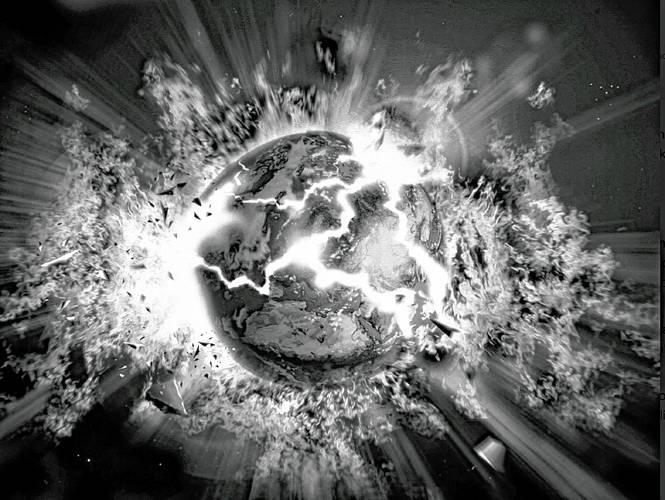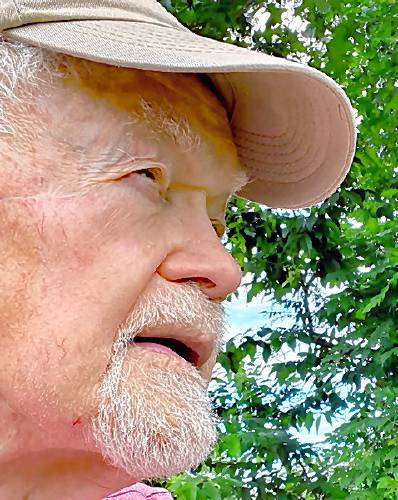Connecting the Dots: ‘They can say they don’t care, but they can’t say they didn’t know’
| Published: 05-17-2024 2:22 PM |
“Sometimes it is almost impossible not to feel hopeless and broken,” says climate scientist Ruth Cerezo-Mota. “After all the flooding, fires, and droughts of the last three years worldwide, all related to climate change, and after the fury of Hurricane Otis in Mexico, my country, I really thought governments were ready to listen to the science, to act in the people’s best interest.”
Now she says “I think 3C is being hopeful and conservative. 1.5C is already bad, but I don’t think there is any way we are going to stick to that. There is not any clear sign from any government that we are actually going to stay under 1.5C.”
Cerezo-Mota recovered from a bout of depression about what she sees as inevitable to continue her work: “We keep doing it because we have to do it, so [the powerful] cannot say that they didn’t know. We know what we’re talking about. They can say they don’t care, but they can’t say they didn’t know.”
Cerezo-Mota is far from alone in her fear. An exclusive Guardian survey of hundreds of the world’s leading climate experts found that:
■77% of respondents believe global temperatures will reach at least 2.5C above pre-industrial levels, a devastating degree of heating.
■Almost half — 42% — think it will be more than 3C: [37 degrees Fahrenheit!].
■Only 6% think the 1.5C limit will be achieved.
The task climate researchers have dedicated themselves to is to paint a picture of the possible worlds ahead. From experts in the atmosphere and oceans, energy and agriculture, economics and politics, the mood of almost all those the Guardian heard from was grim. And “the future many painted was harrowing,” said the Guardian: “famines, mass migration, conflict.”
Article continues after...
Yesterday's Most Read Articles
“I find it infuriating, distressing, overwhelming,” said one expert, who chose not to be named. “I’m relieved that I do not have children, knowing what the future holds,” said another.
In my continuing quest to discover how to comprehend and live in our declining civilization, I have seven regular correspondents that I communicate with. My correspondents live in Amherst, Nantucket, Northfield, Iowa City, Shelburne Falls, the United Kingdom and Longmont, Colorado.
While I treasure each person for different reasons, each of them has a view about the time and space we are living in that usually reframes the way I am seeing things. Thus, I was startled by the words one of my magnificent seven wrote that immediately connected with my own feelings and fear about the future of our planet.
In response to my last column for the Recorder, “Disconnected from nature and paying a terrible price,” are two email paragraphs I received from my Northfield colleague that have found residence in my own comprehension about the future of our planet.
“I have no hope of human nature changing enough to affect the winds and oceans and the growing catastrophes worldwide,” my correspondent wrote. “The greed and hysteria of a species threatened by its own flaws in design ... it’s tragic; it’s a brilliant animal but the alpha males do not protect their people, certainly not their women and children or the earth. They destroy all by endless exploitation. And fight to kill anyone who stands in their way. No backing down like other animals.”
Supporting this statement my correspondent continued: “Ever since Judeo Christian mythology ordered dominion over the earth, we were fated to end up where we are. Without a mythology similar to American Indian mythologies, we are lost ... Without the survival instincts of most other alpha males, the worst of human males never retreat until sometimes whole continents are rubble.”
My Nantucket colleague responded with this compelling question by author and economic analyst Marjorie Kelly who asks: “How deep does societal transformation need to go if we want to change our civilization’s trajectory?” In her recent book “Wealth Supremacy, Decoding the Operating System of Global Capitalism,” Kelly’s work pierces through conventional norms by “naming the unnamed,” showing how criteria generally taken for granted such as fiduciary duty and corporate profit maximization are in fact manifestations of a profound cultural pathology.
What Kelly shows is that, if we want to change our civilization’s trajectory, we must transform it at the deepest level, all the way to capitalism’s operating system, which is summarized by her book’s title. As we consider the possibility of a life-affirming future through an ecological civilization, it’s critical to understand what really needs changing. Daunting perhaps, but essential for survival, if not for earth, for humankind.
Some things are so vast in their implications that it is near impossible to wrap your arms around them. Nonetheless, that’s what John Bos has been attempting to grapple with in his bi-weekly “Connecting the Dots” columns for the Recorder. Help is always appreciated at john01370@gmail..com where comments and questions are always invited.








 Connecting the Dots: It comes to us all
Connecting the Dots: It comes to us all Ira Helfand: A bomb survivors warn of nuclear danger
Ira Helfand: A bomb survivors warn of nuclear danger Michelle Spaziani: High municipal employee turnover merits immediate review
Michelle Spaziani: High municipal employee turnover merits immediate review My Turn: Massachusetts’ health system is failing
My Turn: Massachusetts’ health system is failing
